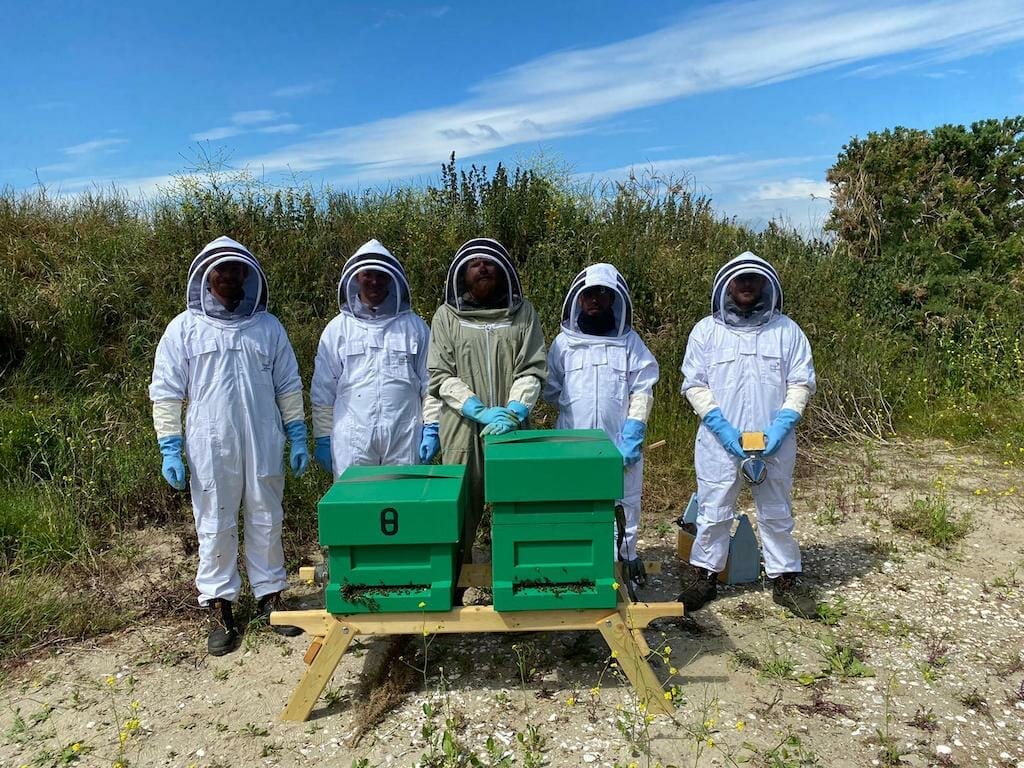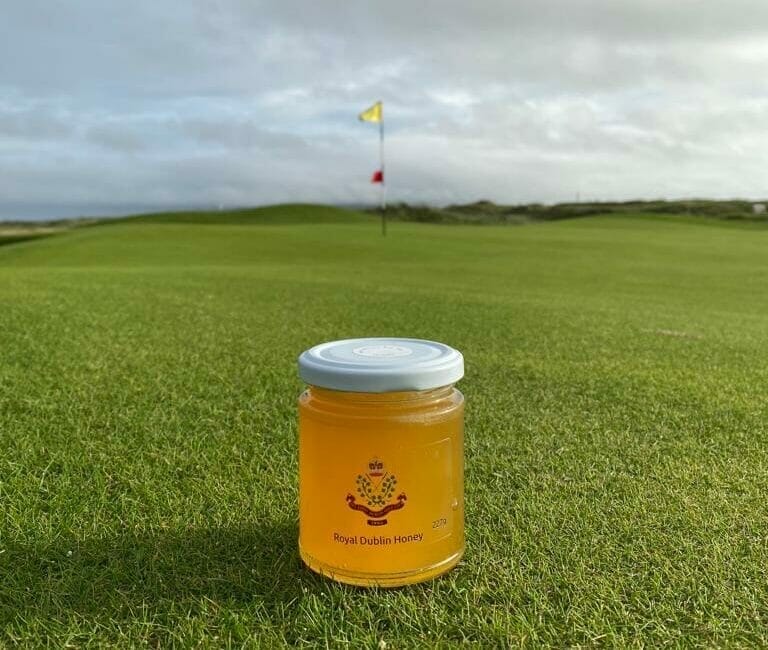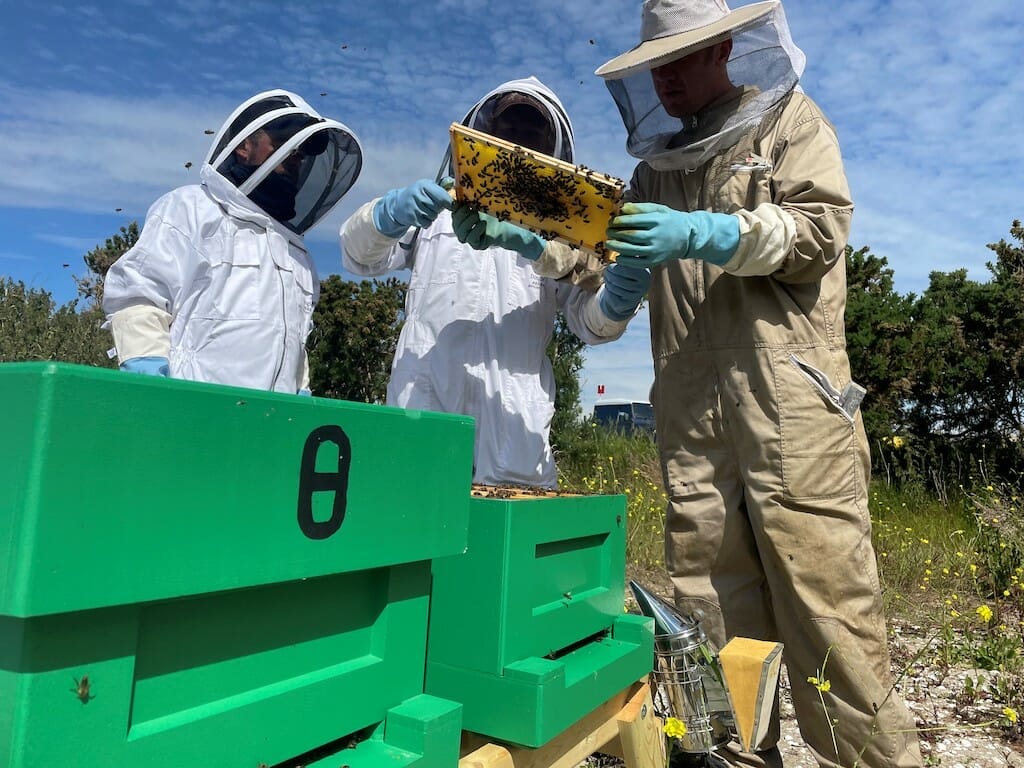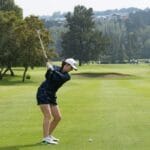Royal Dublin is reaping the rewards of a sweet deal after their introduction of bee hives earlier this year was heralded as a huge success at the club.
The proud links, located on the designated UNESCO biosphere of Bull Island, has been putting their unique environment to use, contributing to the re-establishment and preservation of Irish black honeybees and the protection of biodiversity.
Deputy Head Greenkeeper, Mark Burke, was the driving force behind the project and it was overseen by the links team, who all volunteered to take part in the project after they saw both the biodiversity benefits and the opportunity to get some nice honey for their morning porridge!
Once the Club had decided to proceed with the introduction of the bee hives, they looked at which consultants in the bee industry would be able to assist in the project.
They explored various options and selected OpenHive to help with the initiative. They appealed to the club as the four core elements of their ethos are ‘ethical and sustainable beekeeping, conservation and education’, which was closely aligned to Royal Dublin’s ethos in how the club operates on a day to day basis when maintaining the golf course.
The Director of OpenHive, Kyle Petrie, visited the Club to carry out an assessment of the course and to identify what type of bee would best suit the environment and where to locate the apiary (a collection of bee hives).
Kyle wanted to have a good understanding of the Bull Island biosphere and he reviewed the North Bull Island Management plan (Mark McCorry & Tim Ryle 2009) and recommended the introduction of the native Irish black honey bee (Apis Mellifera Mellifera).
The report also recommended only introducing a small number of colonies, so they would not out-compete other native solitary bee or bumblebee species on the island which had been identified.
Within Royal Dublin’s mission statement, the club ‘Ensures an ongoing commitment to the flora, fauna and bird life with which we share the Island’. As part of that commitment, the club engaged ecologists Faith Wilson and Tom Curtis to review the habitats and species present on the grounds and provide guidance and recommendations on how best to manage them for biodiversity.
Their study found that the Club has a rich array of flora and sand dune habitats on the links, including nine species of native wild orchids:
“Although most of the species are common in Ireland with a couple being restricted in their distribution, they are of high significance within the context of them occurring in such numbers adjacent to a large capital city such as Dublin. Not many other cities around the world can boast of having such orchid diversity literally on its doorstep” – Faith Wilson 2018.
Royal Dublin also manage the dune and calcareous grassland habitats on the course through appropriate mowing and removal of vegetation at the end of the summer months to ensure diversity within the sward and to favour the orchids.
This also favours ground nesting birds, such as Skylark, on the course. The club has also tackled invasive species present on the boundaries of the club to help ensure that they do not spread on the adjoining Nature Reserve and Special Area of Conservation.
One other notable plant that exists on the golf course is Lesser Centaury, which is a threatened species in Ireland and is legally protected under the Flora Protection Order 2015. The club is actively managing areas to ensure this species continues to thrive on the grounds.
From all of us here at Irish Golfer, well done to all involved in the project at Royal Dublin on behalf of bees everywhere. It’s these types of forward thinking initiatives that will save the bee population and ensure we all have honey for our porridge long into the future!
About the UNESCO biosphere at Bull Island
A biosphere is a special designation awarded by the United Nations Educational, Scientific and Cultural Organisation (UNESCO) but managed in partnership by communities, NGOs and local and national governments. They are internationally recognised for their biological diversity yet also actively managed to promote a balanced relationship between people and nature. As a Club we play our part within the biosphere and we do our best to manage the course for the benefit of local flora and fauna as well as our members and visitors.


























Leave a comment